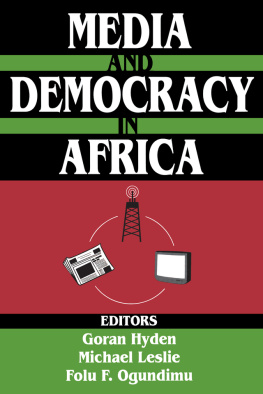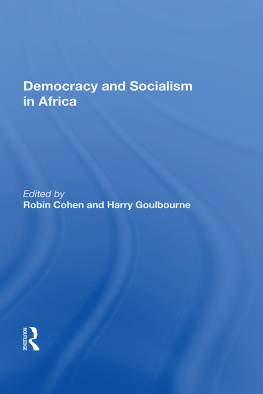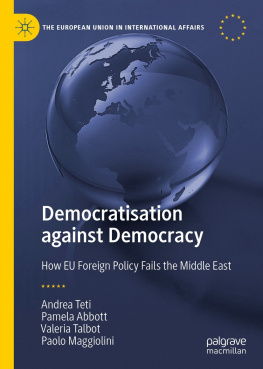Elly Twineyo-Kamugisha - Why Africa Fails: The case for growth before democracy
Here you can read online Elly Twineyo-Kamugisha - Why Africa Fails: The case for growth before democracy full text of the book (entire story) in english for free. Download pdf and epub, get meaning, cover and reviews about this ebook. year: 2012, publisher: Tafelberg, genre: Politics. Description of the work, (preface) as well as reviews are available. Best literature library LitArk.com created for fans of good reading and offers a wide selection of genres:
Romance novel
Science fiction
Adventure
Detective
Science
History
Home and family
Prose
Art
Politics
Computer
Non-fiction
Religion
Business
Children
Humor
Choose a favorite category and find really read worthwhile books. Enjoy immersion in the world of imagination, feel the emotions of the characters or learn something new for yourself, make an fascinating discovery.

- Book:Why Africa Fails: The case for growth before democracy
- Author:
- Publisher:Tafelberg
- Genre:
- Year:2012
- Rating:4 / 5
- Favourites:Add to favourites
- Your mark:
- 80
- 1
- 2
- 3
- 4
- 5
Why Africa Fails: The case for growth before democracy: summary, description and annotation
We offer to read an annotation, description, summary or preface (depends on what the author of the book "Why Africa Fails: The case for growth before democracy" wrote himself). If you haven't found the necessary information about the book — write in the comments, we will try to find it.
Why Africa Fails: The case for growth before democracy — read online for free the complete book (whole text) full work
Below is the text of the book, divided by pages. System saving the place of the last page read, allows you to conveniently read the book "Why Africa Fails: The case for growth before democracy" online for free, without having to search again every time where you left off. Put a bookmark, and you can go to the page where you finished reading at any time.
Font size:
Interval:
Bookmark:


Historians usually recount what happened. Political scientists link history to the political management of society. Sociologists explain the underlying role of culture, family and history, etc., in society. Economists produce models and theories, and make assumptions about situations and how they impact on society. And economic historians portray economic growth and development, but from a historical perspective. Although I cannot claim to conform to any of these disciplines, I have followed, worked on and observed the challenges that sub-Saharan Africa faces as it rethinks its future.
I have written this book from the perspective of my personal experience of more than 20 years as a practitioner in the field of development. However, I am also guided by theoretical work in the fields of international business, international trade, development economics and political economy. I have had the privilege of discussing issues that confront African countries with international leaders, development practitioners, politicians, ordinary people, academics and students. And through discussions, observations and reading, I have come to one conclusion: colonialism is no longer a viable excuse for Africas dismal performance in the global economic arena.
I believe that the solution to Africas economic woes will not come from heaven. Instead, the solution will be the result of home-grown soul-searching and critical planning and commitment to work for prosperity although it will take a long time to yield tangible results. In my view, 25 years will be sufficient for Africa to develop from the last to the first world. To achieve this feat, however, Africa will require courageous leaders, committed men and women who have a vision to steer the ship in the right direction. And, in addition, if sustainable rapid growth and high levels of income are to be achieved, Africans of all walks of life will have to work harder, but in smarter ways. As noted earlier, economic salvation will not come from heaven. It is through strategic thinking and smart, but hard, work that the developed economies have attained economic success. Their policies were tailored to suit specific challenges and aspirations.
Acronyms
| ACP | African, Caribbean and Pacific Group of States |
| AfBD | African Development Bank |
| AGOA | African Growth and Opportunities Act |
| ANC | African National Congress |
| AU | African Union |
| BDP | Botswana Democratic Party |
| CBO | community-based organisation |
| CET | common external tariff |
| CIA | Central Intelligence Agency |
| COMESA | Common Market for Eastern and Southern Africa |
| CPA | Cotonou Partnership Agreement |
| CRB | credit reference bureau |
| DRC | Democratic Republic of Congo |
| EAC | East African Community |
| EC | European Commission |
| ECCAS | Economic Community of Central African States |
| ECOWAS | Economic Community of West Africa |
| EPA | Economic Partnership Agreements |
| EU | European Union |
| FDI | foreign direct investment |
| GDP | Gross Domestic Product |
| HIV/AIDS | human immunodeficiency virus/acquired immune deficiency syndrome |
| IDA | International Development Assistance |
| ILO | International Labour Organisation |
| IMF | International Monetary Fund |
| INGO | international non-governmental organisation |
| LDC | least developed country |
| LRA | Lords Resistance Army |
| MDG | Millennium Development Goal |
| MFI | microfinance institution |
| NATO | North Atlantic Treaty Organisation |
| NGO | non-governmental organisation |
| OAU | Organisation of African Unity |
| PPP | publicprivate partnership |
| REC | regional economic communities |
| SADC | Southern African Development Community |
| UN | United Nations |
| UNCTAD | United Nations Conference on Trade and Development |
| UNECA | UN Economic Commission for Africa |
| UNESCO | United Nations Educational, Scientific and Cultural Organisation |
| UPE | Universal Primary Education |
| UPPET | Universal Part-Primary Education and Training |
| WHO | World Health Organisation |
| WTO | World Trade Organisation |
Soon after gaining their political independence several of them in the 1950s and 1960s many African nations embarked on a struggle for economic independence. Fifty years down the road, the struggle is yet to deliver meaningful results. Millions of Africans still live in dire poverty; many lives have been claimed by curable diseases; many breadwinners have been maimed in wars; and others are unemployed. In turn, their dependants have been deprived of education and healthcare, among other basic necessities.
In tandem with the continents economic plight, many African states have failed infrastructure, and some depend on food aid. Although the economic emancipation struggle has been fraught with immense challenges, I, personally, do not buy into the repeated argument that colonialism is the main cause of Africas current economic woes. I believe that the continents plight is attributable to maladministration by its leaders. Many African nations have suffered long spells of poor leadership, dictatorship and gross corruption.
As explained earlier, this book is the result of my personal experiences and observation. Over the past two decades, I have represented Uganda officially and later unofficially at several development and trade engagements worldwide. I have interacted with bureaucrats and ordinary people from almost every part of the world. I have visited the rich and the poor, and seen how good policies can transform once feeble economies into great industrialised and stable nation states. I have interacted with officials from countries that were once poor but are now economically buoyant, thanks to good policies and leadership. Their countries achieved this as a result of enabling macroeconomic environments and government support. They pulled their scarce resources together. And sooner than they had expected, these countries were on the path to economic freedom. However, I have also seen economies crumble under the weight of bad regimes.
In this book, I argue that despite the effects of the colonial project (some Africans argue that the colonial experiment is yet to end), Africa should accept that its present malaise is largely due to its own mistakes: greed, poor policies and bad leadership. African countries must soul-search and find internal solutions to its problems instead of relying on Europe, Asia and the US. Although most African leaders continue to extend the begging bowl to Western administrations, there is nothing to write home about what they have achieved in their endeavours. In a nutshell, aid has not been useful in terms of enhancing economic growth for African nations. Free things can never build nations, period. Over the past couple of decades, much foreign aid that has been extended to various African countries has been squandered by officials in government. And the activities of non-governmental organisations are not a panacea for development. In my opinion, we need an aid exit strategy. Although I agree with Zambian-born economist Dambisa Moyo (2009) that the entire aid system ought to be disbanded, I do believe the last aid packages should be spent on enhancing trade infrastructure to open up international markets.
Font size:
Interval:
Bookmark:
Similar books «Why Africa Fails: The case for growth before democracy»
Look at similar books to Why Africa Fails: The case for growth before democracy. We have selected literature similar in name and meaning in the hope of providing readers with more options to find new, interesting, not yet read works.
Discussion, reviews of the book Why Africa Fails: The case for growth before democracy and just readers' own opinions. Leave your comments, write what you think about the work, its meaning or the main characters. Specify what exactly you liked and what you didn't like, and why you think so.











